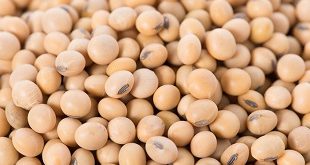
Kenya last year banned dairy imports from Uganda citing complaints by Kenyan farmers over the influx of Ugandan milk which was being priced lower than the one produced in their home country
Kampala, Uganda | Julius Businge | Traders and civil society organisations in Uganda are urging the government of Kenya to allow entry of all goods made in Uganda into their market for as long as they meet all the required standards.
In separate interviews with The Independent, traders and sections of civil society organisations, said that just like the ban on maize was fast lifted, restrictions on dairy, poultry products should be eased/lifted to allow free movement of goods in line with the provisions of the East African Common Market Protocol.
Everest Kayondo, the chairman of Kampala City Traders Association said, Kenya’s behaviour has not started now, and that if it does not stop, the common market protocol will continue to lose meaning.
“No ban should exist without good reason,” Kayondo said, “Uganda has not slapped any ban,” he added.
Kayondo explained that in July last year, Kenya banned sugar imports from Uganda claiming that some of it was being imported from outside and repackaged – an allegation that Kayondo dismissed as untrue.
Just like President Yoweri Museveni, Kayondo says there should not be retaliation in instances where a partner state blocks goods from another within the EAC because it kills the whole spirit of the bloc’s establishment. Meaningful negotiations is the way to go according to Kayondo.
“Uganda just laments and we do not have where to run to address these issues,” he said. Indeed, Ugandan manufacturers under their umbrella body, Uganda Manufacturers Association have been busy since the beginning of last year engaging the government of Uganda to urgently intervene on Kenya’s ban on dairy products (Lato Milk produced by Pearl Dairy Farms Limited), but nothing much has come to fruition.
The ban on dairy imports came after several complaints by Kenyan farmers over the influx of Ugandan milk which was being priced lower than the one produced in their home country.
In the end, Pearl sent home a significant number of its staff. In addition, its Mbarara based plant has since operated below its installed capacity.
Uganda produces 2.6 billion litres of milk per annum. However, domestic demand stands at only 800 million litres, creating a huge surplus that foreign markets especially Kenya would consume.
Economic experts have hinted on protectionism as the main reason for Kenya restricting entry of Ugandan made goods. Kenya is EAC’s largest economy while Uganda comes third just behind Tanzania.
The Executive Director of Southern and Eastern Africa Trade Information and Negotiations Institute (SEATINI) Uganda, Jane Nalunga said just like Kenya lifted the seven days ban on maize imports from Uganda, it should do the same for dairy and other products if fair trade is to be talked about in the EAC economy.
Daniel Birungi, the executive director at the UMA says there should not be abrupt ban on imports within the EAC economies.
He says partner states need to find diplomatic solutions and not diplomatic rows. Birungi urges the two governments (Kenya and Uganda) to walk the talk in line with implementing trade policies that facilitate growth of businesses and the entire EAC economy.

The Minister of Trade, Industry and Cooperatives Amelia Kyambadde said on March 10, that they were considering writing a protest note to Kenya expressing their dissatisfaction on how the ban on maize was handled; two, to cause a ministerial meeting between Uganda and Kenya; three, to cause a meeting of the two heads of state (Kenya and Uganda) and four, to work with local traders to find alternative markets.
Kyambadde said, these measures were targeting all products whose entry into Kenya was restricted.
Data from Bank of Uganda indicates that in 2018/2019, Uganda’s total imports from Kenya amounted to US$711 million and exports were US$433 million.
In 2019/2020, Uganda imports from Kenya amounted to US$730 million and exports were US$423million.
These figures show Kenya as the EAC’s powerhouse which is why experts and traders are calling on authorities to implement fair trade policies.
 The Independent Uganda: You get the Truth we Pay the Price
The Independent Uganda: You get the Truth we Pay the Price



 Anthony Natif notes from Court: Prosecution case enters final stretch
Anthony Natif notes from Court: Prosecution case enters final stretch
